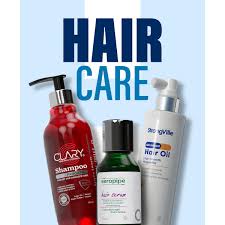The hair care industry has entered a transformative era in 2025, driven by scientific breakthroughs, eco-conscious values, and a deeper understanding of hair biology. From lab-grown actives to smart home devices, hair care is no longer about superficial shine but long-term health and personalization. This article highlights the most innovative ingredients and smart technologies shaping the next generation of hair care.
1. The Rise of Bioengineered Ingredients
Lab-grown and biotech-derived ingredients are redefining safety and efficacy:
- Biomimetic peptides: Replicate natural growth signals to promote hair density.
- Fermented extracts: Increase bioavailability of traditional botanicals.
- Probiotic complexes: Support scalp microbiome balance and reduce inflammation.
Biotechnology ensures consistency, sustainability, and potent performance.
2. Adaptogens in Hair Products
Adaptogens are herbs that help the body manage stress, and now they’re benefiting hair too:
- Ashwagandha: Reduces cortisol-related hair shedding.
- Rhodiola rosea: Supports circulation and nutrient delivery to follicles.
- Holy basil: Soothes scalp sensitivity and protects against environmental stressors.
These ingredients help maintain scalp health under modern lifestyle pressures.
3. Peptide and Protein-Based Solutions
Peptides are small chains of amino acids that build stronger strands:
- Copper peptides: Stimulate hair growth and improve scalp health.
- Keratin and silk proteins: Fill in gaps in damaged hair for smoother texture.
- Plant proteins: Offer vegan alternatives that fortify without weighing down hair.
Peptide-rich formulas offer both styling benefits and long-term repair.
4. Smart Devices for At-Home Analysis and Styling
Smart tools bring salon-grade diagnostics home:
- Hair scanners detect porosity, elasticity, and moisture levels.
- App-connected stylers adjust temperature and style recommendations.
- AI-powered cameras track scalp conditions and product performance.
Consumers can now make data-informed decisions about their hair routine.
5. Climate-Specific Hair Care
Products are now designed for regional climates:
- Humid conditions: Anti-frizz and humidity-shielding polymers.
- Dry climates: Deep moisture lock-ins and UV protectants.
- Urban areas: Anti-pollution and detoxifying shampoos.
Brands like Climate Hair and WeatherCare customize regimens based on your ZIP code.
6. The Evolution of Hair Oils
Hair oils are becoming more multifunctional and sophisticated:
- Squalane oil: Lightweight hydration and frizz control.
- Blue tansy oil: Soothes inflammation and imparts shine.
- Micro-encapsulated oils: Deliver nutrients slowly for longer-lasting effects.
These oils support the hair’s lipid barrier and deliver active ingredients efficiently.
7. Waterless and Low-Waste Formats
To address sustainability, brands are ditching water-heavy formulas:
- Powder-to-foam shampoos
- Solid conditioners and treatments
- Concentrated serums in compostable pods
Waterless formats reduce environmental impact and packaging waste.
8. Advanced Scalp Treatments
The scalp gets its own skincare-grade solutions:
- Exfoliating tonics with fruit enzymes
- Balancing serums with niacinamide and probiotics
- LED scalp therapy combs to stimulate blood flow and reduce dandruff
Scalp-first care boosts hair growth, reduces irritation, and promotes shine.
9. Hair Microbiome Support
Just like skin, the scalp has a microbiome:
- Prebiotic shampoos feed healthy bacteria.
- Postbiotic rinses soothe inflammation.
- Microbiome-balancing conditioners keep bad bacteria at bay.
Balancing the scalp microbiome may prevent common issues like flaking and slow growth.
10. Customizable Formulas via Smart Dispensers
Smart dispensers blend active ingredients in real time:
- Users input goals (volume, growth, color protection)
- Devices mix and dispense precise doses
- Refills are sustainable and tailored to changes in hair condition
Brands like L’Oreal and Function of Beauty lead the smart dispensing movement.
11. Clean Beauty with Clinical Backing
Consumers demand both natural and effective:
- Green chemistry techniques create non-toxic, biodegradable ingredients
- Clinically validated naturals such as rosemary, caffeine, and nettle root
- No “greenwashing”—transparent labels and third-party testing now expected
Performance and purity go hand-in-hand in modern hair care.
12. Inclusive Formulations for Diverse Hair Textures
Brands are addressing a broader spectrum of hair needs:
- Curl-centric lines for 3A to 4C textures
- Protective style maintenance kits
- Hydration layering systems (leave-in, oil, cream)
Inclusivity in marketing and formulation ensures everyone feels seen.
13. Supplements and Nutricosmetics
Hair wellness from within is trending:
- Marine collagen peptides
- Functional gummies with biotin, zinc, silica
- Ayurvedic blends with amla and bhringraj
These supplements pair with topical routines for holistic hair health.
14. Fragrance and Sensory Experience
Hair care is also about how it feels and smells:
- Mood-enhancing essential oils like bergamot and sandalwood
- Silicone-free slip agents for luxurious texture
- Aromatherapeutic styling mists
The multisensory element enhances the self-care ritual.
15. Final Thoughts: The Future of Hair Care Is Here
2025 marks a turning point where hair care meets science, tech, and sustainability. From smart tools and AI personalization to eco-conscious, biotech-driven ingredients, the landscape is evolving to meet consumers' diverse needs and values. Whether you're addressing hair loss, managing curls, or building a minimal-impact routine, there’s never been a better time to invest in your hair.
With science-backed innovations and inclusive approaches leading the charge, the future of hair care is not just about looking good—it’s about feeling good, sustainably and intelligently.

